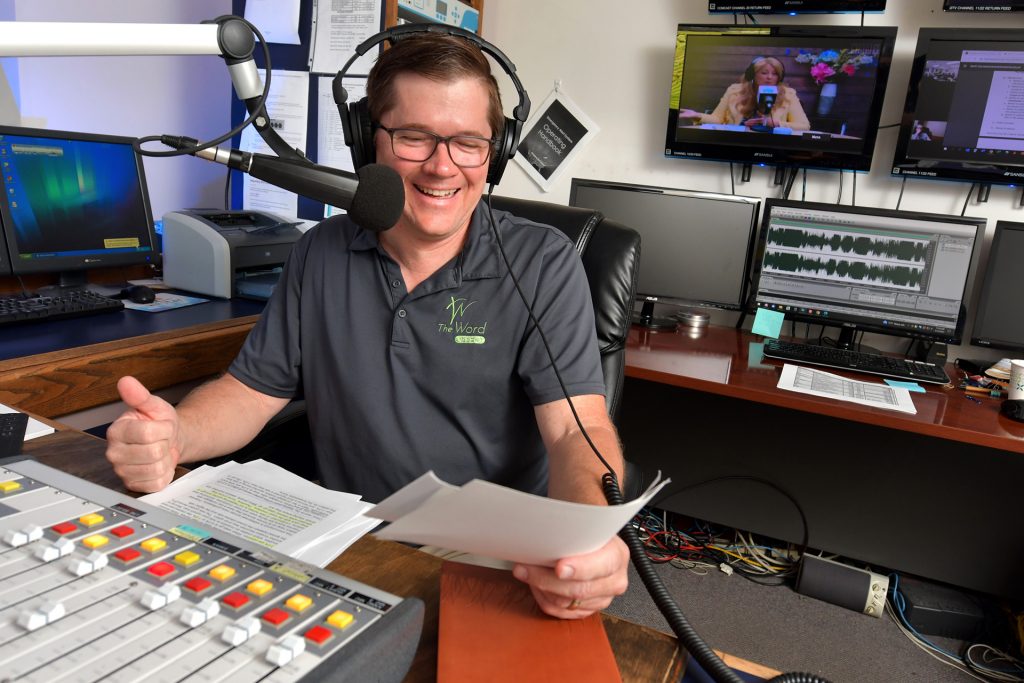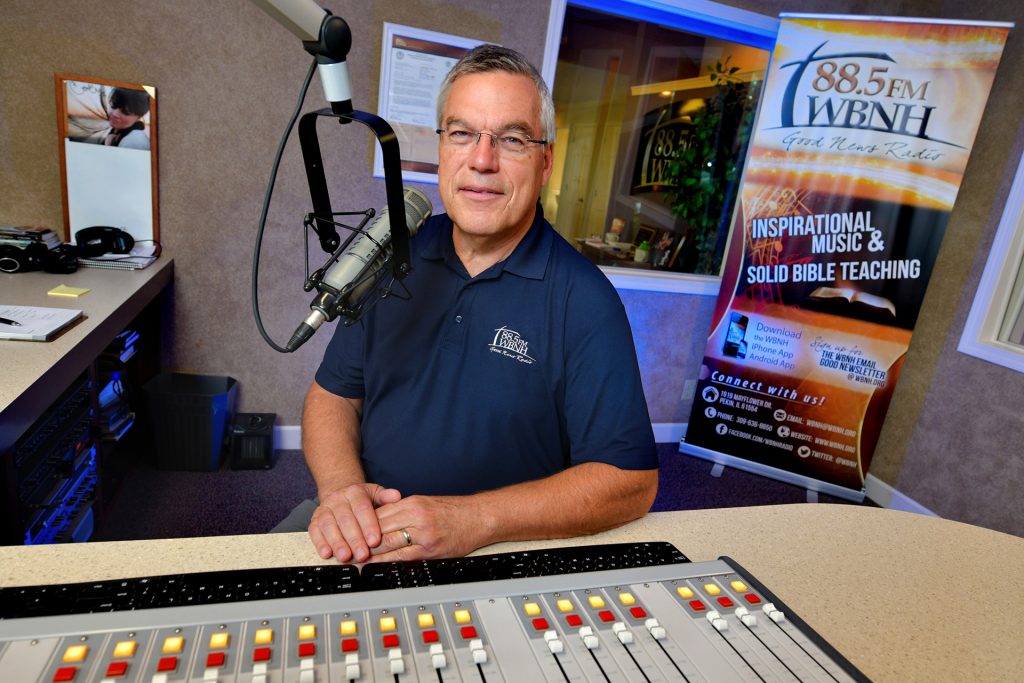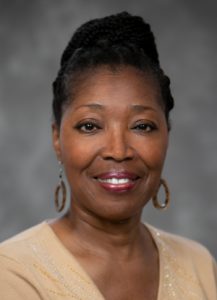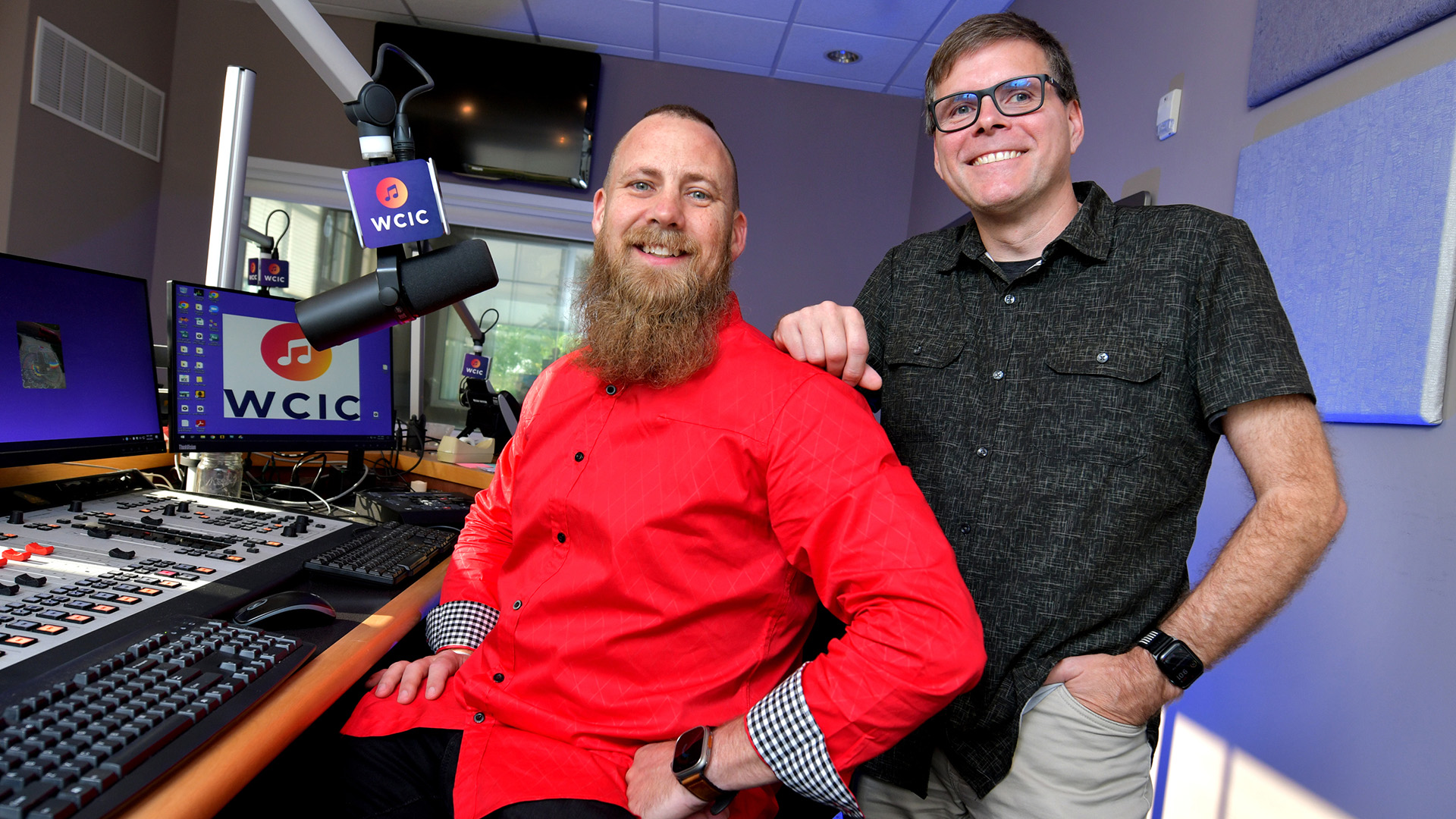For more than 50 years, ‘God has provided’ to keep the Christian broadcasting format alive in central Illinois
Religious radio has long had a loyal following in central Illinois. For three local Christian radio stations, technological advancements including streaming services have helped them reach an audience anywhere and at any time around the globe.
WPEO Radio, the area’s oldest religion format station, got its start in 1970 under the Pennsylvania-based Pinebrook Foundation. That was 20 years after the station initially signed on in downtown Peoria under a different name.
‘maybe it’s become more of a mission field than it even was back when we started’ — Joe Buchanan
“If you were going to listen to Christian radio in Peoria, you had to listen to WPEO. There was no other option,” said WPEO Station Manager Paul Scott.
During those early years the radio station provided secular, top 40 programming under the call letters WMMJ. Pinebrook sold the station to the current owner WPEO Foundation in 2014. WPEO now operates out of East Peoria — on nine acres perched on Highview Road — and broadcasts on the AM frequency, catering to a talk radio audience by providing syndicated programming interspersed with local shows from 6 a.m until 8 p.m. daily.

“The mission is to broadcast programs that will help people understand God, that will help people understand themselves and their world,” Scott said.
Meanwhile, WPEO has three FM sister stations in 97.7, 98.3 and 103.9, on which it airs programs such as Focus on the Family, In Touch with Charles Stanley and Washington Watch.
Earlier this spring, Scott debuted The Good Word in an effort to bring back more local programming. “I am the host and we talk to local ministers about what’s happening in the community,” he said.
Contemporary radio must build relationships with the community in order to survive, said Scott. Ten years ago, management rebranded, becoming The Word WPEO. The station’s annual budget is small, and WPEO employs a staff of five. The station’s revenue comes from three sources: programming, advertising and listener donations. Scott said the local community has been generous. When WPEO FM needed a new transmitter, the station got a matching grant opportunity and listeners contributed $28,000, said Scott.
Those early years were difficult for the radio station’s previous owners, which led to it going off the air due to financial difficulties. Since its return more than 50 years ago, WPEO has remained competitive.
“God has always provided and we’ve survived through the excellent stewardship by the previous management,” Scott stressed.
WCIC
Later this fall, Pekin-licensed and Peoria-based WCIC will celebrate 40 years on the air. Station Manager Joe Buchanan said a lot has changed from those early days when listeners heard a few teaching programs and then popular contemporary artists.
‘We are always looking to be uplifting. It’s easy to get negative news’ — Rick Smith, WCIC
“We’re still playing adult contemporary, but adult contemporary music has come a long way. It was a little bit more southern gospel … back in those days. We played Sandy Patty, a little country flair with the Gaither Vocal Band, some Russ Taff. Music has changed a lot. Now it’s more pop, younger artists.”
Thirty-somethings now have joined the baby boomers who tune in to WCIC, said Buchanan, adding that research has shown that many WCIC listeners do not attend church.
“They know who Jesus is and they acknowledge him but don’t have a deep relationship with him,” he said. “So maybe it’s become more of a mission field than it even was back when we started 40 years ago.”
Indeed, while the music has changed over the years, WCIC’s mission has not.
“Jesus is really the key to why we do what we do and then providing an on ramp for those who don’t know him and helping those who do know him grow in their walk,” said Buchanan. “We have fun on the air but it’s important that we share our faith.”
WCIC Program Director Rick Smith said talking with listeners also builds trust.
“We are always looking to be uplifting. It’s so easy to get negative news,” he said. What drives listeners to WCIC “is that we look at the hope,” said Smith. “Even in tough situations, we’re always bringing it back to the positive side. People seem to really resonate with that.”
Smith said that the station’s message was especially important during the COVID-19 pandemic.
WCIC has 11 on-air personalities who broadcast live from 6 a.m. until 6 p.m. with about 80% music. Meanwhile, there is a lot of audience interaction between the songs.
“On Fridays we like to count blessings,” Smith said. “One listener called back. He had called earlier in the week, his son had to go to the emergency room in the middle of the night, and had some bumps. They were worried about cancer. It turned out just to be a virus,” he said.
With an annual budget of $2.5 million, WCIC is supported solely by listener donations. Located off War Memorial Drive in Peoria, the station can be heard in multiple market areas including Peoria (91.5 FM on the radio dial), Springfield (90.5), Galesburg (100.5), Bloomington (98.9), Sterling/Rock Falls (88.7), Jacksonville (91.7), and parts of the Quad Cities. WCIC is owned by Northwestern Media, a division of the University of Northwestern located near St. Paul, Minnesota.
Meanwhile, “we work with organizations like Dream Center, Peoria Rescue Mission,” said Buchanan. “We’re working with Midwest Food Bank for our upcoming fundraiser. Community impact is extremely important to us.”
WBNH
WBNH Radio got its start nearly 35 years ago in the basement of First Baptist Church in Pekin.
“We had no employees, just a board of directors made up mostly of men from the Baptist church then and their wives would help,” Station Manager Jim Huber recalled.

Huber said money was so tight that they borrowed program tapes from another Christian radio station in the Quad Cities, which helped them get the radio station going. In the early ‘90s, WBNH became affiliated with Moody Radio Network of Chicago, which currently provides most of its programming.
“Just about everything Moody would air, we feel we could air,” Huber said. “There are one or two programs that we do not air and that’s simply because we do not have room. We want to do some local things.”
WBNH continues to be locally owned, with a board of directors who all live in central Illinois. The station has a staff of four and a budget of $650,000. Volunteers and board members help hosts events, some of which take place at the station located on Mayflower Drive in Pekin.
WBNH is also supported by listener donations. As with other Christian stations, local partnerships are important, he said.
“When the stimulus checks were being floated around, we turned them all down,” he said. “We decided we wanted to stay with our original mandate and be totally listener supported, and God has provided. Keeping it local means that we have a relationship with our audience,”
WBNH’s FM signal, 88.5 on the dial, reaches Bloomington and targets 40- to 60-year-olds. Huber said attracting younger people is a major goal.
“We’re going to have to meet them where they are and that’s not on the radio. That’s online,” he said. “In our future, there may be interactions like podcasts. Material is gonna be the big thing.”
For now, those listeners can tune in via website or app. Huber said there will also be tweaking of music to include a diverse format for their expanded age groups.





